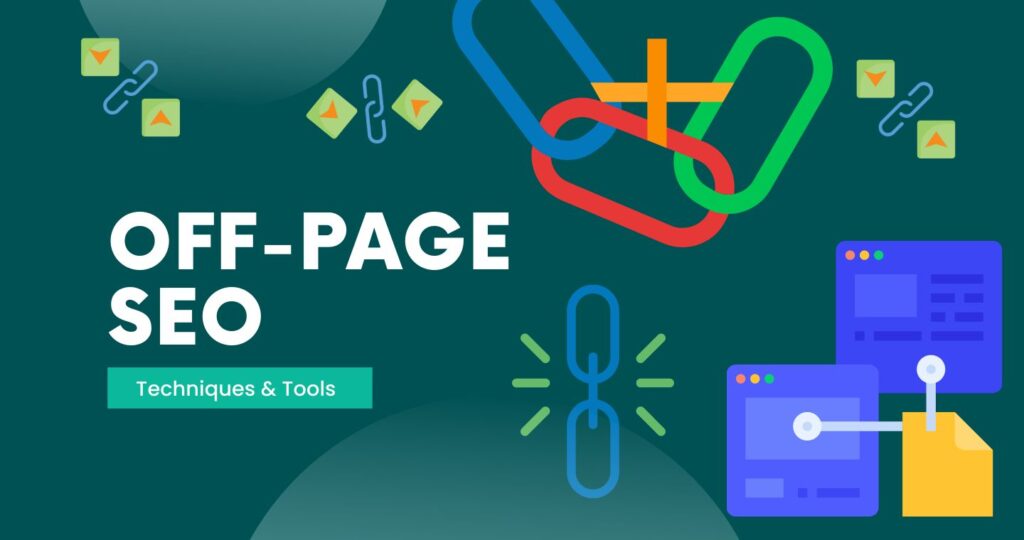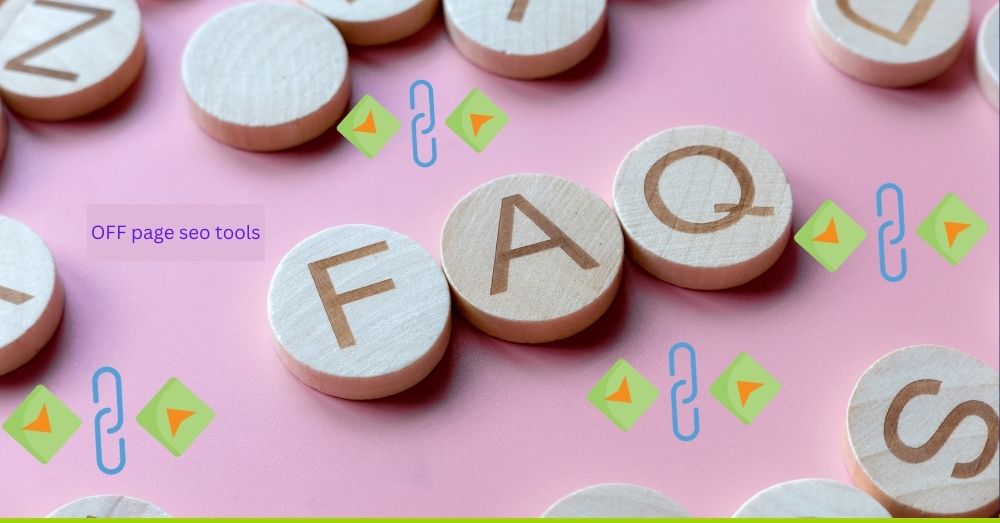Let’s talk about off-page SEO without the usual marketing fluff. If you’re here, you probably know that SEO isn’t just about stuffing keywords into your website and hoping for the best. The real magic happens off your site, in the vast wilderness of the internet.
Think of your website as a politician running for office. On-page SEO is like having a great campaign speech and looking sharp in debates. But off-page SEO? That’s your reputation in the community, the endorsements from respected figures, and the buzz you generate in the media. Both are crucial for a successful search engine optimization strategy.

What Exactly Is Off-Page SEO?
At its core, off-page SEO includes activities done away from your website to increase its search rankings. It’s everything that happens outside your digital property that convinces Google your site is worth showing to people.
But here’s what makes it tricky: you don’t have direct control over most of it. It’s like trying to get people to talk about you at a party without actually being there. Awkward? Maybe. Essential? Absolutely.
The Big Three of Off-Page SEO
1. Backlinks: Your Digital Vote of Confidence
Remember high school, when getting noticed by the popular kids meant instant social credit? Backlinks work similarly. When reputable websites link to yours, they’re essentially telling Google, “Hey, this site knows what it’s talking about.”
But here’s the thing about backlinks in 2024: quality trumps quantity every time. Building high-quality backlinks remains one of the most effective off-page techniques. One link from a respected industry website is worth more than fifty from sketchy directories that look like they haven’t been updated since 1999.
2. Social Signals: The Digital Word of Mouth
While social media might not directly impact your Google rankings (sorry to burst that bubble), it’s still crucial for off-page SEO. When people share your content, discuss your brand, or engage with your posts, they create what we call “social signals.”
Social media engagement helps build your brand’s authority and credibility. Think of it as the modern equivalent of word-of-mouth marketing. When people talk about you on social media, they’re more likely to search for your brand name, visit your website, and maybe even link to your content.
3. Brand Mentions: The Nameless Links
Sometimes, people talk about your brand without linking to it. These “brand mentions” or “citations” might seem useless since there’s no clickable link, but they’re actually valuable for your SEO. Increasing branded mentions is becoming an increasingly important part of off-page SEO.

Modern Off-Page SEO Techniques That Actually Work
Guest Posting (But Not Like It’s 2010)
Gone are the days when you could spam guest posts across every blog that would accept them. Today, it’s about finding relevant, high-quality sites in your niche and providing genuine value to their readers. If you’re just trying to squeeze in a backlink, you’re doing it wrong.
Podcast Guesting
Podcast guesting has emerged as a powerful off-page SEO strategy. It’s a fresh way to reach new audiences and often comes with the bonus of backlinks in show notes. Plus, it helps build your personal brand, which indirectly benefits your website’s authority.
Digital PR
Think beyond traditional guest posting. Digital PR techniques have become a crucial part of off-page SEO. This might include getting featured in industry news, participating in expert roundups, or creating newsworthy content that naturally attracts links.
The Truth About Off-Page SEO in 2025
Here’s what nobody tells you: good off-page SEO is really about building relationships. Yes, the technical stuff matters, but at its heart, it’s about connecting with other people in your industry, creating content worth talking about, and being genuinely helpful to your audience.
The days of gaming the system are over. Experience has become a crucial ranking factor, and Google’s getting better at spotting artificial attempts to boost rankings. The best off-page SEO strategy? Build something worth linking to, and then let the right people know about it.
Moving Forward
Start small. Focus on building genuine relationships in your industry. Create content that solves real problems. Engage authentically on social media. The links and mentions will follow naturally when you’re providing actual value.
Remember, off-page SEO isn’t about quick wins – it’s about building a sustainable online presence that grows stronger over time. Like a good reputation in the real world, it takes time to build but pays dividends for years to come.
Credit : Semrush
Advanced Off-Page SEO Strategies
Content Partnerships and Co-Marketing
One often overlooked aspect of off-page SEO is strategic content partnerships. By collaborating with complementary brands or industry experts, you can create valuable content that naturally attracts backlinks and social shares. This might include:
- Joint research studies or industry reports
- Co-hosted webinars
- Collaborative infographics
- Combined data analysis projects
- Cross-promotional content campaigns
The key is choosing partners whose audience overlaps with yours without being direct competitors.
Local SEO Optimization
For businesses with physical locations, local SEO is a crucial component of off-page optimization. This involves:
- Creating and optimizing Google Business Profile listings
- Building local citations in business directories
- Encouraging and managing customer reviews
- Participating in local business events
- Engaging with local online communities
- Building relationships with local media outlets
Community Engagement Tactics
Building a strong community presence extends beyond traditional social media activities. Consider:
- Creating and moderating industry-specific forums
- Participating in relevant Reddit communities
- Contributing to professional LinkedIn groups
- Engaging in Twitter spaces or Instagram live sessions
- Hosting virtual meetups or industry gatherings
Measuring Off-Page SEO Success
Key Metrics to Track
To ensure your off-page SEO efforts are paying off, monitor these essential metrics:
- Domain Authority Growth
- Referring Domain Diversity
- Brand Mention Frequency
- Social Share Metrics
- Citation Flow and Trust Flow
- Branded Search Volume
- Click-Through Rate from Search Results
Tools for Monitoring Off-Page Performance
Invest in tools that help track your off-page SEO progress:
- Ahrefs or Majestic for backlink analysis
- Brand24 or Mention for brand monitoring
- SEMrush for competitor analysis
- Google Analytics for referral traffic
- Google Search Console for search performance
Common Off-Page SEO Mistakes to Avoid
Over-Optimization Traps
Even experienced marketers can fall into these pitfalls:
- Purchasing backlinks (still a big no-no in 2025)
- Using exact-match anchor text too frequently
- Focusing on quantity over quality in guest posting
- Neglecting relationship building in favor of quick wins
- Ignoring the context of backlinks
Reputation Management Oversights
Your online reputation directly impacts your off-page SEO. Avoid:
- Ignoring negative reviews or brand mentions
- Failing to monitor brand conversations
- Missing opportunities for brand advocacy
- Neglecting to build relationships with industry influencers
Future-Proofing Your Off-Page SEO Strategy
Emerging Trends to Watch
Stay ahead of the curve by keeping an eye on:
- Voice search optimization opportunities
- AI-driven content distribution
- Virtual and augmented reality platforms
- New social media platforms and features
- Changes in Google’s algorithm regarding link quality
Building Sustainable Practices
Focus on creating lasting impact through:
- Developing genuine industry relationships
- Creating evergreen, linkable assets
- Building a strong brand presence
- Establishing thought leadership
- Maintaining consistent community engagement
Implementation Timeline
Month 1-3: Foundation Building
- Audit current backlink profile
- Set up brand monitoring tools
- Identify potential partnership opportunities
- Create a content collaboration strategy
Month 4-6: Relationship Development
- Initiate outreach to industry partners
- Begin guest posting on targeted sites
- Launch social media engagement campaigns
- Start local SEO initiatives
Month 7-12: Scaling and Optimization
- Expand content partnerships
- Increase community engagement
- Launch digital PR campaigns
- Monitor and adjust strategies based on results
Remember, off-page SEO is a marathon, not a sprint. The key to success lies in consistent effort, authentic relationship building, and a commitment to providing value to your industry community. By focusing on these elements while staying adaptable to new trends and algorithm changes, you’ll build a strong foundation for lasting search engine success.

Frequently Asked Questions About Off-Page SEO
What is off-page SEO?
Off-page SEO refers to activities done outside your website to improve its search engine ranking. It includes building backlinks, guest posting, social bookmarking, and other strategies that boost your website’s credibility and authority.
Are backlinks still important in 2025?
Yes, backlinks remain one of the most crucial ranking factors. However, the focus has shifted from quantity to quality, with emphasis on relevant, authoritative links from trusted sources.
How can I get high-quality backlinks?
You can get high-quality backlinks by:
Guest posting on reputable blogs
Participating in influencer outreach.
Submitting your website to trusted directories.
Creating shareable content, like infographics and research studies.
How do I find good guest-posting opportunities?
Search for websites in your niche with high domain authority and engaged audiences. Look for blogs that accept guest posts or offer collaboration opportunities. Use tools like BuzzSumo to discover blogs that accept guest posts.
Is guest posting still effective for SEO?
Yes, when done strategically. Focus on high-quality, relevant websites in your industry and provide genuine value through your content rather than just seeking links.
How can I check my backlink profile?
Use tools like Ahrefs, Majestic, or Google Search Console to monitor your backlink profile, including new and lost links, anchor text distribution, and referring domains.
What are toxic backlinks and how do I handle them?
Toxic backlinks are low-quality or spammy links that can harm your SEO. Use Google’s Disavow Tool to remove them, but only after careful analysis and documentation.
Does local SEO require different off-page strategies?
Yes, local SEO focuses more on local citations, Google Business Profile optimization, local reviews, and community engagement specific to your geographic area.
How important are brand mentions without links?
Unlinked brand mentions (citations) contribute to brand authority and can influence rankings. Google recognizes these mentions as implied endorsements.
How do I measure off-page SEO success?
Track metrics including:
Domain authority growth
Referring domains
Brand mention frequency
Organic traffic increase
SERP position changes
How often should I conduct off-page SEO activities?
Maintain a consistent schedule:
Daily: Social media engagement
Weekly: Content outreach
Monthly: Link building campaigns
Quarterly: Strategy review and adjustment
What role do reviews play in off-page SEO?
Reviews contribute to local SEO, build trust signals, and can improve click-through rates from search results. They’re especially important for local businesses.
Can negative reviews hurt my SEO?
While negative reviews themselves don’t directly harm SEO, they can impact click-through rates and conversion. Address them professionally and promptly.
How do I stay updated with off-page SEO trends?
Follow industry blogs and experts
Participate in SEO communities
Attend webinars and conferences
Monitor Google algorithm updates
Test and measure new strategies
Conclusion
Mastering off-page SEO is crucial for boosting traffic and rankings.
Use strategies like:
- Building quality backlinks.
- Connecting with influencers.
- Guest posting.
- Social bookmarking.
- Directory submissions.
As we move into 2025, it’s important to stay updated with the latest trends and best practices. Use off-page SEO techniques and measure their success. This will ensure your website’s long-term success.
Remember that SEO is a marathon, not a sprint. A strategic, patient, and consistent approach will boost search engine rankings. It will also lead to sustainable growth over time.

 Get it on
Get it on  Download on the
Download on the